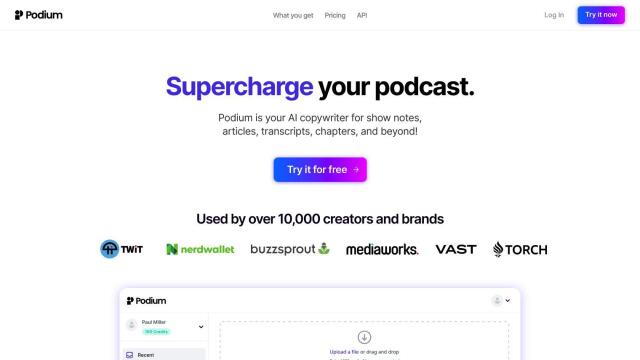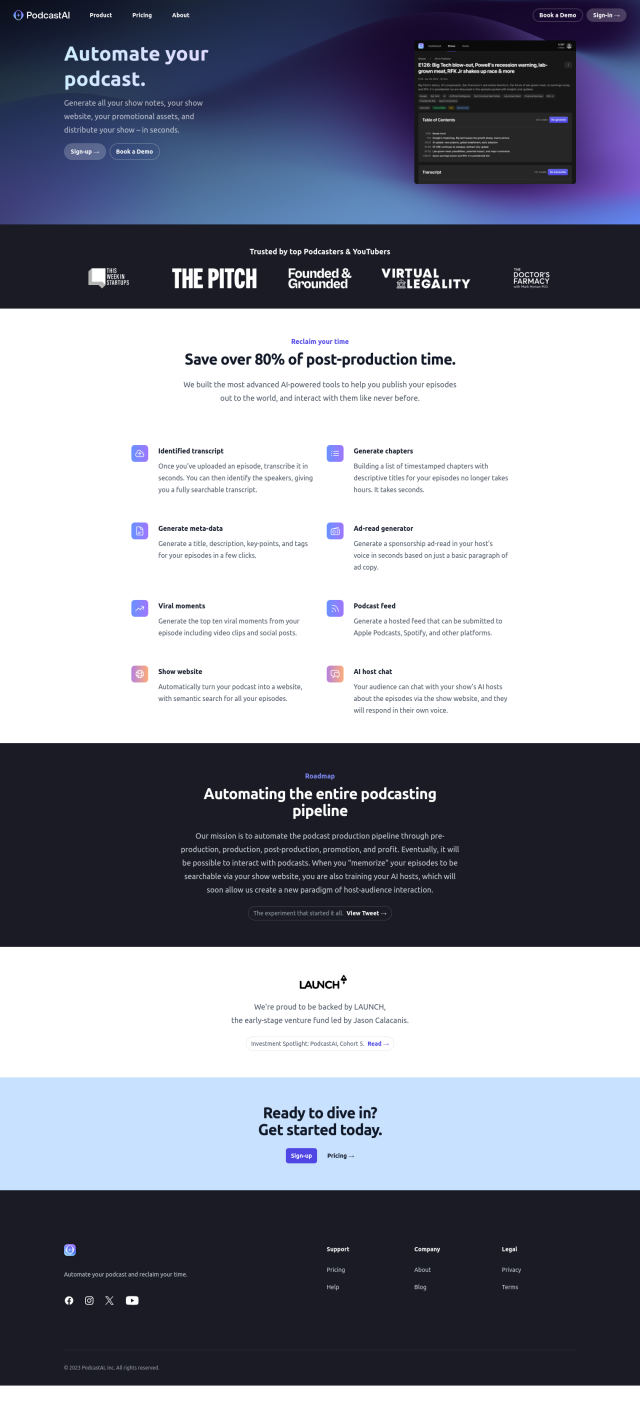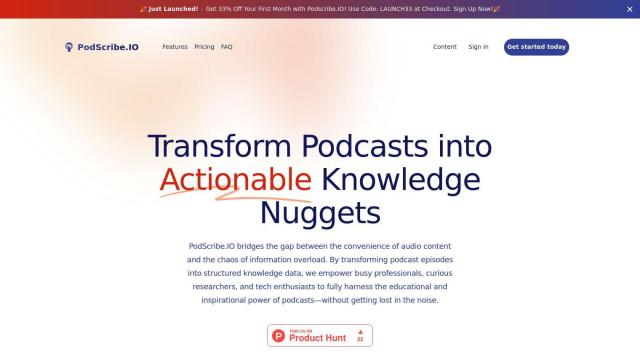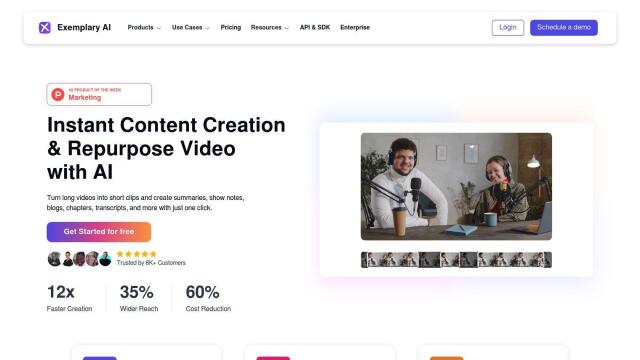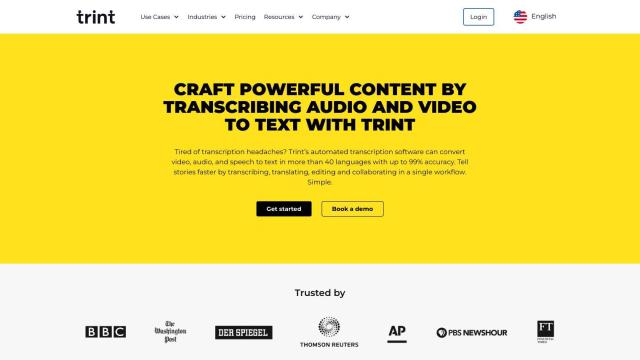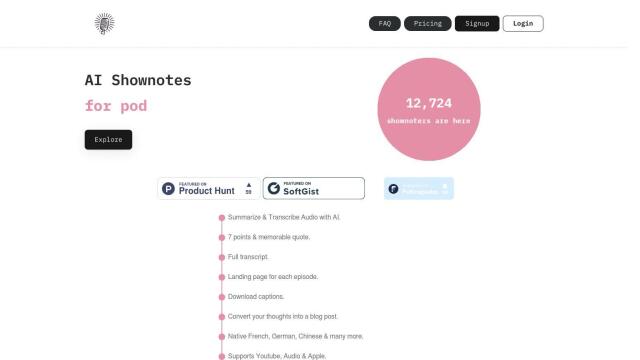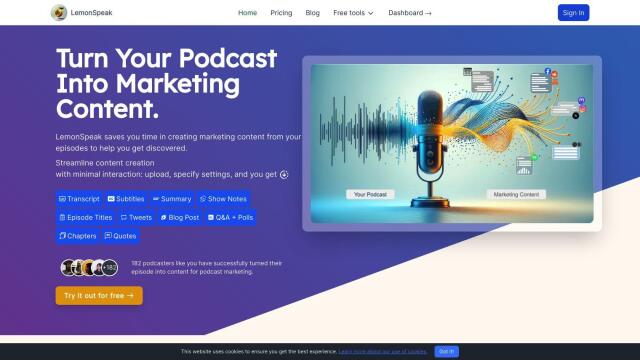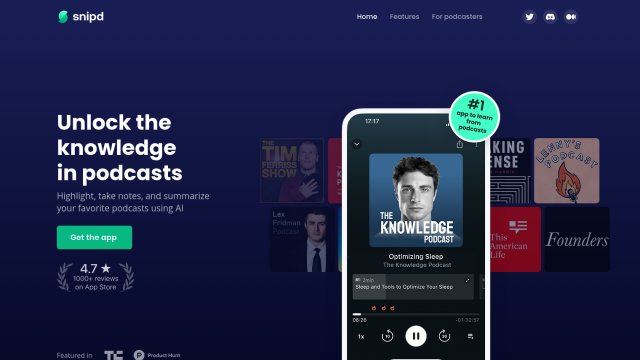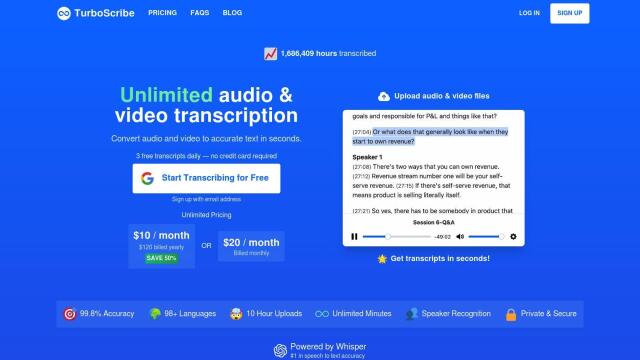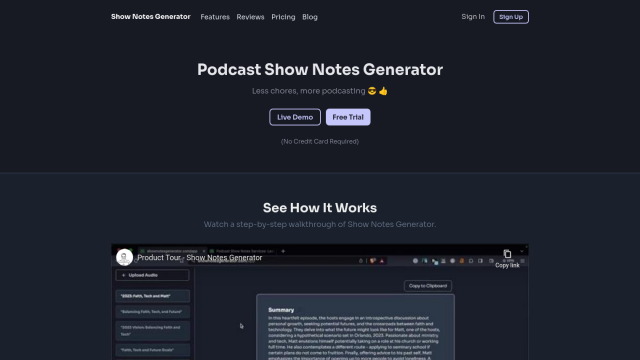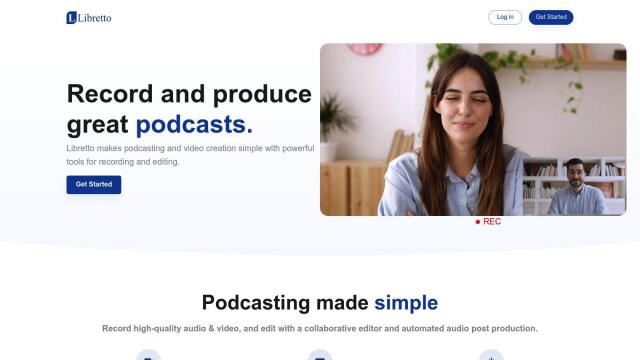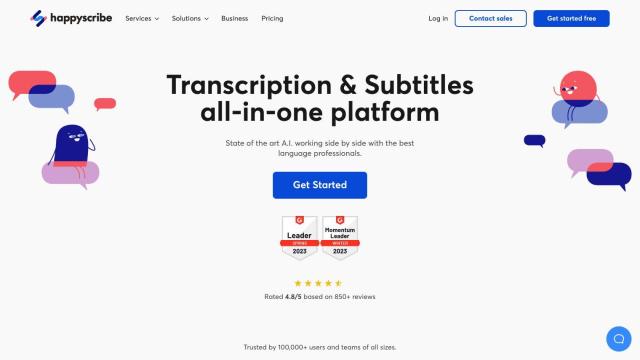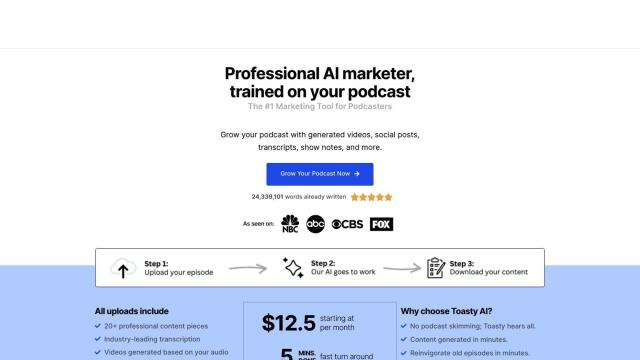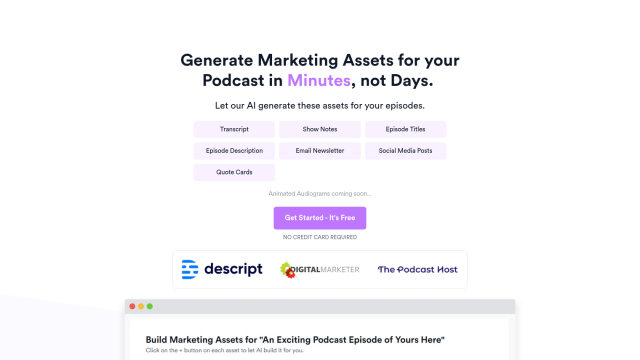Question: I need a way to transcribe and make my podcast content more accessible and discoverable, do you know of any solutions?


PodSqueeze
If you want to make your podcast content more accessible and discoverable, PodSqueeze is another good option. The AI-based tool offers a range of features, including full transcripts in SRT format, show notes with summaries and timestamps, chapter markers, and automatically generated social media posts, blog posts, newsletters and subtitled video clips and audiograms. It's geared for professional podcasters, solo podcasters and agencies, and comes with a Podcast Topic Research Tool to help you plan ahead for future episodes.

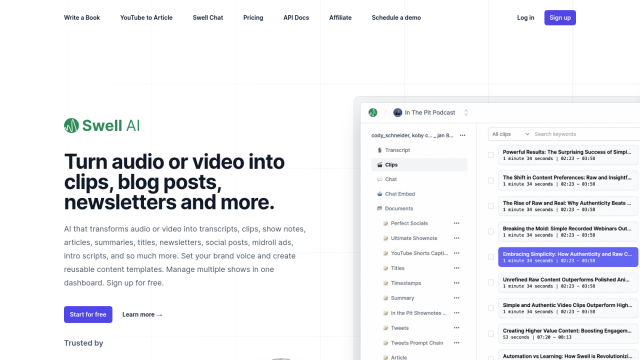
Swell AI
Another good option is Swell AI, which converts audio and video into a variety of formats like transcripts, clips, show notes, articles, summaries, titles, newsletters and social posts. It's got a transcript editor with AI suggestions and automatic speaker labeling, and lets you share transcripts publicly with shareable links. Swell AI also integrates with chatbots and APIs, so it's a good option if you're managing lots of shows and trying to optimize your content strategy.


Deciphr
If you need something more flexible, Deciphr offers a variety of AI-based tools for generating transcripts, summaries, show notes and AI-generated audio and video reels. It accepts a variety of file types, including txt, doc, docx, MP3 and WAV, and you can upload batches of files with RSS or YouTube URLs. Deciphr is designed to make content creation easy and accessible, and uploaded files are private and secure.

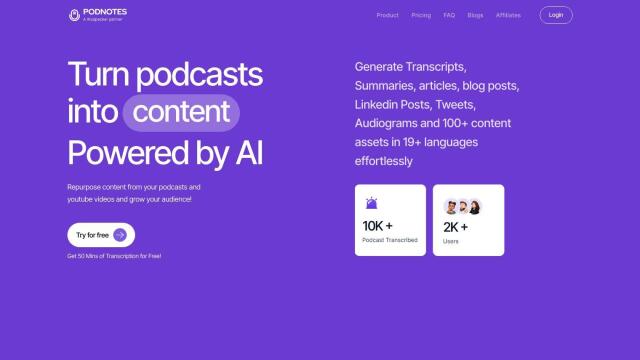
Podnotes
Another tool worth a look is Podnotes, which converts podcasts and audio files into a variety of formats like transcripts, summaries, social media posts and audiograms. It supports more than 19 languages and automates a lot of the work to get you to where you want to go faster, with features like transcription, summarization and a Magic Chat function for contextual search and Q&A. Podnotes offers several pricing tiers, including a free option, so you can find an option that works for you.



